What Happens at a DUI Checkpoint
For those curious about the on goings of a DUI checkpoint, we’re exhaling the process of a DUI checkpoint for you. That was an example of some good word play! You didn’t come here for the word play, so here’s what happens during a DUI Checkpoint.
How They Work
DUI (Driving Under the Influence) or DWI (Driving While Intoxicated) checkpoints can pop up just about anywhere and anytime. You can spot them, because traffic officers create a road block and close off all lanes except for one. This is to check on the status of drivers by filtering them through one, single lane.
The goal is to catch and remove any drivers who may be operating their vehicle under the influence of drugs or alcohol. Therefore, any suspicious behavior is often a sign of someone who is under the influence.
What To Do
Not if, but when you find yourself in the middle of a DUI or DWI checkpoint, the important thing to remember is to comply with traffic police during this process. Creating any kind of confrontation or suspicious behavior is often a red flag. Especially when officers just want to keep the roads safe for everyone.
More often than not, officers ask for your driver’s license and car registration form. Following this, you are asked to briefly answer a series of questions. This will help determine the sobriety of any drivers behind the wheel. Any unusual behavior will encourage the police officers to conduct a field sobriety test.
So, what’s there to expect if you’re expecting a field sobriety test?
Field Sobriety Tests
The Field Sobriety Test is a in depth process to determine the sobriety of the driver. This test is broken into three different physical challenges. But, it’s not like competing in a game show, like how I just described it.
During the first phase of the test, you will be asked to balance yourself on one leg while stretching with the other. If you are under the influence, finding balance will be difficult.
The second step is the notorious walk-in-a-straight-line test. This will challenge your ability to, well, walk in a straight line. Which, when you’re under the influence is extremely challenging to do.
If you’ve made it this far in the test, then get ready for the eye gaze test. This final step tests your ability to follow an object with your eyes while holding your head still. Which, in case you haven’t seen the pattern, is extremely challenging to do while under the influence.
Because it’s designed to be that way.
These tests have been tested to be accurate, since they are standard across the country. So, forget about trying to learn the alphabet backwards, because that’s a sobriety test that nobody can pass. Not even people who are sober.
When you find yourself stuck in a DUI checkpoint, just remember that the traffic officers are keeping the roads safe. You should always comply and make their job easier, because nobody enjoys dealing with difficult people. Finally, never operate a vehicle while under the influence.
If you know someone who is a first time Nevada DUI offender, they will be required to take a NV 8 hour DUI course. Other states may order offenders to take traffic school to lessen the charges.
Keep a clean driving record and never get sloppy behind the wheel!
TOP 5 SIGNS YOU HAD A ROCKIN’ CA NEW YEAR’S BUT SHOULD NOT DRIVE HOME YET
Wow, what a great New Year’s party in Los Angeles, California! You made so many friends at your swanky Hollywood party in Chris Hemsworth’s mansion. Everyone loved your fantastic new outfit, and thought all your jokes were hilarious and interesting! You even gave a New Years smooch to your celebrity crush Dwayne “The Rock” Johnson and/or Jessica Chastain.
This was a party for the books.
Now it’s time to drive home before everyone else clogs up the roads in L.A’s notorious traffic. But if you feel dizzy and you’re seeing double, even after your nap in the bathtub, do not get behind the wheel. Even all the knowledge from your CA traffic school education cannot help you drive!
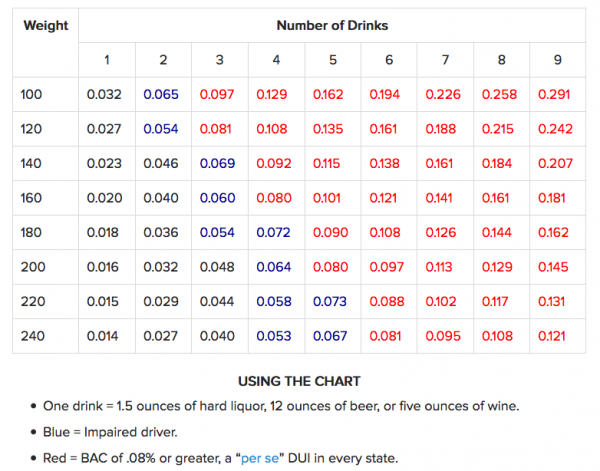
The truth is, you could still be drunk or impaired.
Lucky for you, you’ve developed the critical thinking skills to determine whether you’re too drunk to drive thanks to your favorite traffic school teaching you that you should allow at least one hour for every standard drink consumed and to carry a trusty Blood Alcohol Level Chart wherever you go. You recount your night and remember:
1. You just took a shot with Adam Driver
“Hey! You’re Kylo Ren from Star Wars!” you belted out at your favorite celebrity. “You’re a superb actor and I’m a huge Star Wars fan!” Flattered by your sincere compliment, Adam Driver offers you a shot of Grey Goose and then proceeds to get to you know you on a personal level.
1 shot = 1 hour before you can drive home.
The only Driver at this party should be Adam, who’s listening to how much you love traffic school.
2. Arnold Schwarzenegger helped you with a keg stand
Extending his hand to you, Arnold Schwarzenegger says “Come with me if you want to get drunk!” It’s a special occasion, so you happily oblige as he lifts you upside down and places you on top of a beer keg. The next thing you hear are your wonderful peers counting the seconds as you chug.
You make it to 16 seconds and Arnold flips you over onto your feet. The blood rushes from your head as the room spins. You thank him for the help and you meet your friends in the other room.
“You’ll be back,” Arnold mutters. “I think you just consumed three beeers.”
3 beers = 3 additional hours until you are ok to drive home.
3. Emma Stone and Ryan Gosling put you into their reenactment of La La Land
The city of stars just gained another star, and it’s you! At least it was for the 2-hours and 8-minutes when Emma Stone and Ryan Gosling used you as a third when they broke out into their song and dance. You couldn’t have remembered every dance step and song lyric from the movie La La Land, so you had to be drunk!
It looks like someone in the crowd gave you another drink after your performance. Just wait until your friends at traffic school hear this!
1 standard drink = 1 more solid hour until you sober up.
4. You held a 30-minute conversation with Bjork
Manifesting from Chris Hemsworth’s botanical garden, Bjork starts a conversation with you. Unbeknownst to you, she can only speak using metaphors and symbolism in the form of music from stringed instruments and trash can lids. You’ve always been fascinated by the Scandinavian singer & songwriter, so why not give this conversation a shot?
The next 30-minutes, although not understanding it, enlightened you to the point of developing a natural drunkenness. You realize that talking to Bjork is the equivalent of taking five shots (you actually had 5 shots while talking with her). You politely end the conversation as the Scandinavian Goddess is carried away by a pack of forest creatures and fairies.
5 shots = 5 more hours you need to sober up!
5. You spent the last hour drinking wine with Meryl Streep
Flabbergasted by your regal New Years outfit, Meryl Streep shimmies you over to the fireplace where she talks to you about love, happiness, and traffic school. She pours you a glass of wine from her bottle of Armand de Brignac. It’s a $16,000 bottle of wine and how could you say “no” to Meryl?
For the next 2-hours you and Meryl slam a few bottles as she recites her life story to you. After praising your ability to listen, Meryl is whisked away to do a solo reenactment of Mamma Mia!
How many drinks was that?
If you have to ask yourself that question, the answer is probably too much. When you’re still feeling the side effects of alcohol in the morning, don’t drive. It’s always safer to find another way home.
Remember what your favorite traffic school always says, “Don’t drink and drive!”
Best & Worst New Jersey Driving Laws
It doesn’t matter what state you live in, there are bound to be certain laws that you adamantly agree with and others that you don’t agree with. Driving laws are no different – some are good, and some are, based on various opinions, bad. If you live in the state of New Jersey, you might want to just brush up on all of them because numerous studies routinely rank New Jersey drivers among the worst in the nation! It’s why taking a
defensive driving course in NJ is so common among motorists in the Garden State, whether drivers are looking to keep a citation off their record or proactively lower their insurance rates.
With all of this in mind, here’s a part of what New Jersey residents can expect to learn in a defensive driving course when it comes to laws of the road. Like we said in the opening, some you might think are good and others you might not. Have a look:
New Jersey Driving Laws: The Good
Speed Limits

New Jersey is a congested state when it comes to motor vehicles, with many commuting to New York and elsewhere each day. Noting this, and the likelihood of traffic congestion, speed limits are designed to reflect this. For instance, on New Jersey interstates, the speed limit is 55 miles per hour. On highways, it’s typically 65 miles per hour. In most other states, speed limits tend to be at least 5 miles per hour faster.
Honk First

According to New Jersey law, before motorists can pass a bicyclist or skateboarder, they first must honk. It’s a bit of an odd law, but we think it’s a good one. After all, not only are drivers giving fair warning to someone that they’re passing, but depending on how annoying the skateboarder or cycler is acting, the honk can also let out some frustration. Unfortunately, not a lot of people follow this law. We think it’s time to change that. Honk away everyone!
New Jersey Driving Laws: The Bad
Early-Bird Driving Laws

There are two steps that New Jersey drivers must pass to get their basic driver’s license: a permit period and a provisional period. Drivers must drive supervised with a permit for six months before they can move on to the provisional license stage, which consists of one year of unsupervised, yet restricted, driving. In order to receive a basic driver’s license, where there are no restrictions, drivers must have completed both the permit and provisional stages without incident and be 18 years old. We like the emphasis on experience and safety, but some drivers might not like the restrictions during these various stages.
It’s Illegal to Frown at a Police Officer

We’re guessing that this one doesn’t get enforced too much, but it’s still an odd one. We can’t imagine too many people are happy when they get pulled over for a traffic citation.
Intoxication Means No Personalized Plates
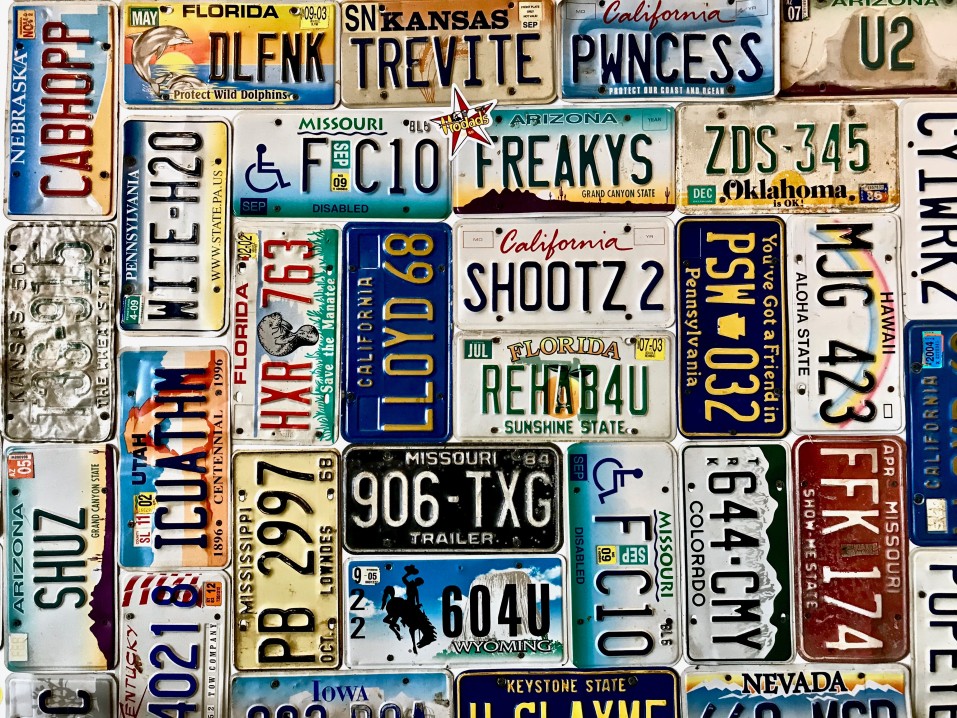
We’re all about giving drivers second chances and helping them learn from their mistakes. So that’s why we think it’s silly that a driver that’s been convicted of driving while intoxicated can never apply for or receive a personalized license plate. Like we said, everyone makes mistakes – and while driving while under the influence is certainly a very serious one, this law seems a little bit harsh.
Regardless of your take on any of these New Jersey driving laws in this piece – or any other laws that we didn’t mention in here – it’s important to keep in mind that laws are in place for a reason. Usually, that reason is to keep motorists and pedestrians safe. In our New Jersey defensive driving course, we’ll cover these laws and more. Contact us today for more information.
Top 2017 Traffic Laws News
Every year brings an array of significant traffic news and 2017 is no different. Here are a few of the latest traffic laws throughout the country that are making headlines.
Cell Phone Laws
Washington
…has become the first state to pass a cell phone ban while driving. Many states have laws regarding texting while driving or going hands-free while driving. But studies have shown that talking on the phone, even by Bluetooth, can be a distraction while driving. As such, this law goes into effect: you can receive a $136 fine the first time you are spotted driving while on or using the phone. The fines increase from there, based on the frequency in which you receive tickets. Also, keep in mind that you can take a defensive driving course to remove points on your driving record for minor traffic infractions, but that is not an option with this type of violation.
DUI Ignition Interlock Devices
California
…has recently passed a law that requires ignition interlock devices be placed in the cars of anyone convicted of a DUI, including their first one. Typically, these devices are utilized when someone has multiple DUIs. Currently, the program is in a testing phase in four counties. It is expected to slowly roll out to other counties once all the kinks are worked out. It is expected that every county will be on board by January 1, 2019. Many Californians are criticizing this new law for various reasons. 1. Ignition interlock devices are expensive to install in vehicles and 2. a drunk person can have anyone who is not drunk blow into the device and start the car. Many people also proclaim that it is overkill to have first-time offenders required to have this device installed in their car for a period of time. However, a larger percentage of Californians believe in the proponents of the law that ar looking to curb drunk driving and feel this may the way to do it.
Left Lane Law
Nevada
…has made headlines for passing a law that allows law enforcement to pull over people who are impeding traffic in the fast lane, even if they are going the speed limit. If a driver is in the fast lane on the freeway and has a line of cars built up behind them, they are required to pull over into one of the slower lanes. Unfortunately, many people do not. Studies have shown, this is the number one cause for road rage, and road rage is becoming more prevalent. As such, law enforcement is looking to curb this behavior using this law. Additionally, keeping traffic flowing in the left lane is vital in case of an accident, as law enforcement and emergency vehicles use this lane in these circumstances.
Seatbelt Law
Every state has seatbelt laws. However, if an adult is not buckled up in the car, that passenger will receive the ticket.
Mississippi
…just passed a law that states that the driver is now given the ticket because it is their responsibility to ensure all passengers are fully buckled up before they drive off. This law is making headlines because many feel an adult should be responsible for their own choices. However, not wearing a seatbelt leads to more serious injuries or death than anything else in a car accident. Many Mississippi drivers support that law hoping it will increase seatbelt safety.
Traffic laws are ever changing as our society changes. Some laws are controversial, while others are simply revolutionary. Learning about what laws are making news may be an indication as to what traffic laws may soon be coming to the state you reside in.
New AZ Car Laws for 2017 and Beyond
Arizona may not change its traffic laws with the same frequency as neighbor California. Nevertheless, in 2017, and beyond, motorists will notice a fair number of new AZ car laws.
Everyone needs to be cognizant of the regulations because in many cases the authorities are exercising zero tolerance for discrepancies.
Here are five of the newest changes to Arizona traffic laws. Some were adopted in 2015 or 2016 but will come into effect in 2017 or have a significant effect on the population this year onward.
City Speed Limits in Park Areas

Municipalities will have the power to either raise or lower the speed limit in areas next to public park facilities. They already hold this authority in school zones.
Both motorists and pedestrians near parks should be cautious because not everyone will be aware of the changes. Longtime residents of these neighborhoods may be used to the traditional speeds and either proceed more slowly or quickly than designated.
Working Car Lights Mandatory

Every light on a car must be working. Otherwise, an officer has a right to pull the driver over for a search. Some believe this power amounts to harassment. The state has decided that officers can use the stop as probable cause to conduct a search of the vehicle.
Misunderstanding the interpretation of the law will get many into trouble. It is easy to see how motorists would believe that such a search would be inadmissible. However, they must accept that the state seems to think that the right of officers to protect the public outweighs the privacy rights of drivers.
Safety Corridors
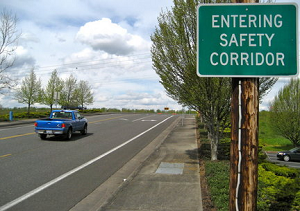
Beginning the last week of December 2016 and continuing in 2017, certain Arizona highways will be designated Safety Corridors. Law enforcement surveillance of motorists will be extra vigilant in these locations. Those breaking traffic laws will face increased odds of getting caught, as a result.
The goal of the Safety Corridors is to reduce the number of accidents and fatalities in places noted for high incidents. Fortunately, signs will designate the Safety Corridors so that motorists can react accordingly, reducing speed, using signals and generally doing whatever the law dictates.
Blocking Traffic at Political Rallies
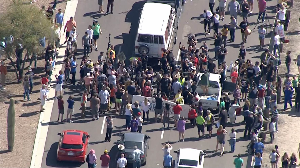
In 2016, the legislature decided that enough was enough when it came to political protesters. Hoping to protect the freedom of expression, lawmakers increased the penalty for blocking access to political events from a class three to class one misdemeanor. Those charged will now face serious consequences.
The laws will remain on the books in 2017, despite the fact that the emotional 2016 election is now over. All of this means that those who try to take over Arizona highways and roads for political reason could face prosecution and a possible permanent record.
Marijuana DUIs
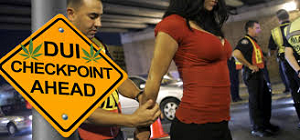
In November 2016, the state electorate rejected Proposition 205, which would have legalized recreational marijuana use.
Many mistakenly believe marijuana does not fall under the DUI regulations. They believed Proposition 205, if passed, would have brought marijuana under the DUI rubric. Yes, the wording of the proposed law did explicitly mention marijuana DUI stops. Yet, officers can already arrest those suspected of driving while influenced by the herb.
Motorists should realize that in 2017, they can actually face two charges if using marijuana while driving, both possession of an illegal substance and a DUI.
Be Careful in 2017 and Beyond
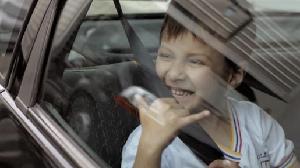
As seen here, a lot has changed in Arizona recently. Motorists hold the responsibility for knowing the current laws. Keep checking for more changes and be careful while on the roads.
Washington State Getting Tough(er) On DUI
For drivers in Washington State, getting behind the wheel after having a few beers might become a much, much bigger deal than it has ever been before.
Just last week the Washington State Senate Law & Justice Committee approved a measure which they hope will improve the state’s impaired driving laws. The changes include making driving under the influence a felony on the fourth conviction, rather than the current law that has it at five DUI convictions within 10 years. Their proposal also includes a mandatory arrest if a person has a prior offense within the past decade and increases mandatory minimum jail time for repeat offenders. If someone with a prior offense is arrested again on DUI a court must require that an interlock device be installed on the person’s car with proof to be filed with the court within 10 days, or the court can require participation in a sobriety monitoring program, or both.
Mandatory arrests, mandatory installation of interlock ignition devices, increased risk of an extended stay in jail–clearly Washington State legislators are not messing around when it comes to drunk drivers and repeat offenders.
And well they should. Because despite the attention garnered by distracted driving, driving under the influence of alcohol, especially repeat offenses of those arrested once for drunk driving is no less dangerous than it has ever been. And despite best efforts by police and legislators to curtail fatalities caused by drunk driving the statistics show that drunk driving is still a leading cause of death on the roadways.
At My Improv we consider ourselves the Washington defensive driving school, so we recognize just how dangerous drunk driving is and applaud any efforts to help get the statistics turned around and focused on keeping everyone safe.
DUI In Florida Is Serious Business
Florida drivers face some of the most severe penalties for being convicted of driving under the influence of alcohol. In fact, the state boasts one of the highest conviction rates for
DUI in the nation.
Florida police are specially trained to identify and catch drivers they believe are under the influence of alcohol. They use a variety of tactics to find and punish anyone who is getting behind the wheel with alcohol in their system above the legal limit of .08 including random DUI checkpoints.
Florida law is very clear about who can be prosecuted under their strict DUI laws and legislators have gone to great lengths to make it easy for prosecutors to convict anyone police suspect of being under the influence of alcohol while driving.
Your best plan is to arrange a safe and sober ride home if you are planning on partying in the Sunshine State.
Driving Under the Influence
A driver can violate Florida’s DUI laws by driving or being “in actual physical control” of a vehicle while either:
-Having a blood alcohol content of 0.08 percent of higher, also known as “DUI per se,” or
-Having his or her “normal faculties” impaired by alcohol or any chemical substance
Potential Penalties
The potential penalties that a person faces for a first DUI conviction in Florida can be severe:
-Jail: A person convicted of a first DUI offense in Florida faces up to six months in jail. The potential jail time increases to nine months if the driver’s B.A.C. was higher than 0.15 or if a minor was in the vehicle at the time of the offense. However, a judge may order the person to serve the time in a residential alcohol or drug treatment facility rather than in jail.
-Probation: In addition to possible jail time, a person can receive a probation term. The total jail and probation period for a first offense cannot exceed one year.
-Fines: The fines for a first DUI conviction range from $500 to $1,000. If the driver had a BAC higher than 0.15 percent or there was a minor in the vehicle at the time of the offense, the potential fines increase from $1,000 to $2,000.
-Community service: Those convicted of DUI must serve 50 hours of community service, or pay an additional fine of $10 per hour of community service ordered.
-Driver’s license revocation: A person convicted of a DUI loses his or her driver’s license for at least 180 days and possibly for as long as a year.
-Vehicle impounding: The police will impound a driver’s vehicle for 10 days if the driver is convicted of DUI.
Melrose Place Star Pleads Not Guilty to Manslaughter
The star from the original
Melrose Place continues to make headlines following her DUI car crash last June in New Jersey, which resulted in the death another motorist.
Amy Locane-Bovenizer is facing manslaughter charges.
The 39-year-old mother of two pleaded not guilty to aggravated manslaughter and assault by auto charges, reports say.
Somerset County prosecutors say Locane-Bovenizer’s SUV hit the vehicle of 60-year-old Fred Seeman as he was turning into his driveway, breaking 10 of his ribs and killing his wife.
Officers detected alcohol on Locane-Bovenizer’s breath and arrested her, but she was shortly freed after posting $50,000 bail.
We talked about this subject before, but it never ceases to amaze and anger us. We come across many people from different walks of life in our Traffic School.
Especially when we teach our classes in Hollywood we see many celebrities come through our doors… Yes, celebrities too get traffic tickets. We’re all human and we totally understand an occasional speeding ticket. But being a celebrity comes with certain responsibilities. And while reckless driving (especially under the influence) is non- excusable for anyone…it’s especially troubling to see another celebrity making headlines… For crying out loud… if you are going to have few cocktail – enjoy! – But get a Limo – you can afford it!













 Live Chat
Live Chat



